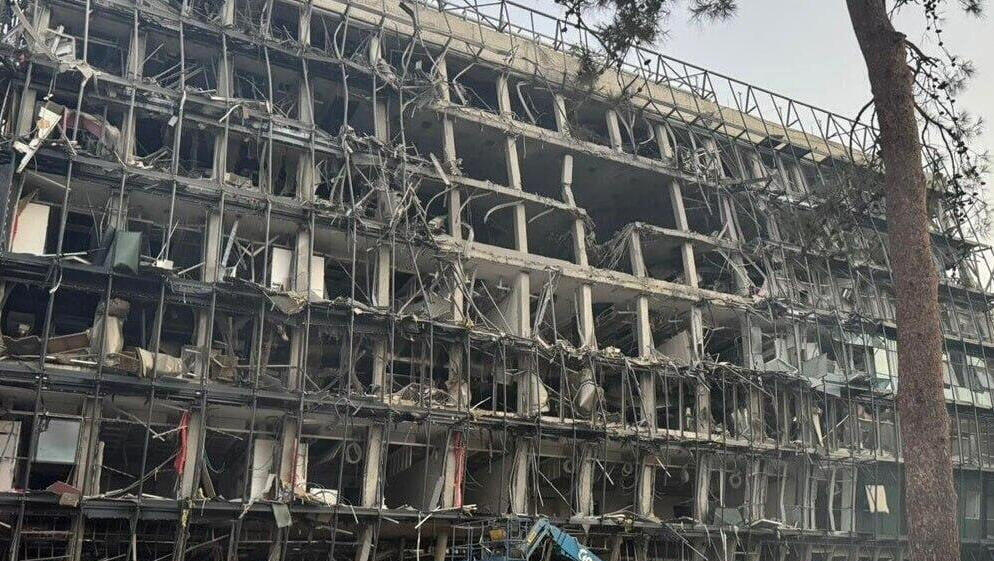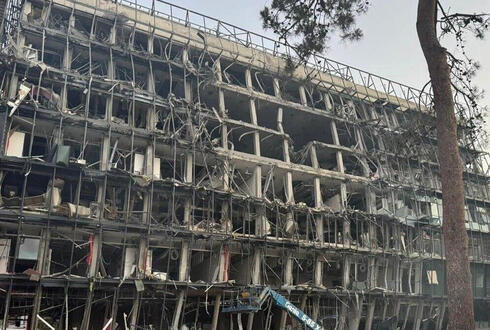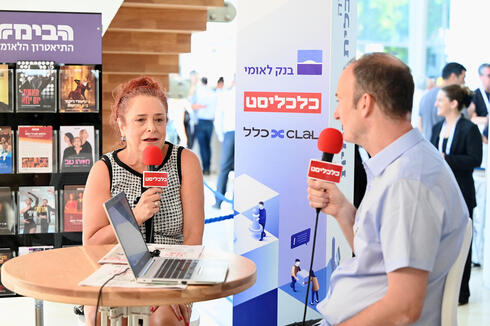
Weizmann Institute vows to rebuild after missiles reduce labs to rubble
Despite massive destruction, leaders see hope in resilience, and a chance to turn brain drain into brain gain.
“The damage caused at the Weizmann Institute set research back years,” said Prof. Idit Shachar, an immunology researcher and head of the Weizmann Institute's Office for the Advancement of Women in Science and Gender Equality, in an interview at Calcalist’s National Economic Conference.
On Saturday, June 15, scientists at the Weizmann Institute woke up to a new reality. Two ballistic missiles launched from Iran struck the institute’s grounds, causing enormous destruction. The damage is estimated at two billion shekels. But beyond the physical destruction, the significance runs much deeper: decades of research, groundbreaking experiments, the professional lives of researchers, and the future of students were suddenly thrown into real jeopardy. In the interview, Shachar recalls the moment when everything turned upside down, and the long road to recovery.
“I was asleep that night, I didn’t know anything until the next morning,” Shachar told Calcalist reporter Hagay Gilboa. Only when she opened her phone did she realize that something serious had happened: “Hundreds of WhatsApp messages and videos people were filming at the Institute. I missed a huge event.” At first, she still hoped her laboratory building had been spared. But when she arrived at the scene, she faced a harsh reality. “Our building was hit badly,” she said. Shachar drove from Tel Aviv to the Institute with a close friend, knowing she was about to see something difficult. Because of the risk of collapse, she entered the building wearing a motorcycle helmet.
“Everything was destroyed. It was hard to make your way through, like you had to climb over rubble,” she described. On the fourth floor, where her laboratory was located, the devastation was clear: “The doors were blown off, my office door just flew away. Everything was covered in glass, blown apart, massive destruction. All the refrigerators flew open, their doors blown off.”
Shachar’s research in immunology relies on experiments with mice and samples from patients. The damage to critical equipment was devastating. “The refrigerators were completely open, there was no electricity, so a lot of the materials were not at the right temperatures, everything was ruined.” Fortunately, the animal facility was not hit, but the research itself came to a complete halt. “Everything we’d built up over the last few months was destroyed, and we still don’t know the full extent of the damage,” she said. On the first day, they tried to salvage whatever they could. Shachar says simply: “The damage set our research back years.”
Beyond the equipment and lab animals, the deeper impact is human. “The students are in the most difficult situation, in my opinion, because they’re facing total uncertainty,” Shachar explains. “They have a limited timeframe to complete their degrees, and no one knows when or how they’ll be able to continue their research.” She sees it as her responsibility to reassure them, create some certainty, and find a solution, even if the path will be long. “In the end, things will work out, but it will take time.”
The Institute has started allocating temporary spaces for alternative labs, but rebuilding is a real struggle: acquiring new equipment and starting almost from scratch. “We’re going back months, even years, checking everything and seeing where we can begin again,” Shachar said.
Related articles:
Alongside her role as a researcher, Shachar also leads efforts to advance women in science. She highlights a persistent gap: “Fifty percent of our doctoral graduates are women, but only 20 percent of professors in academia are women.” The critical point, she explains, is the postdoctoral stage, which usually takes place abroad. Many women are forced to forgo it due to family responsibilities or their partner’s career. Shachar is trying to change that: to build confidence and encourage women to pursue international research, even if they feel they’re “not the right material for the Weizmann Institute” or “not good enough.”
Despite the devastation, Shachar sees a small source of hope. Due to cuts to science budgets in the US under President Donald Trump, many scientists are seeking new opportunities. “If Israel can stabilize itself, it could become an attractive option for Israeli scientists abroad, and turn brain drain into brain gain.” Thus, from the ruins of the lab and in the face of tremendous damage, a story of resilience, female leadership, and cautious optimism is taking shape at the Weizmann Institute. “We will recover,” Shachar concludes. “But it will be a long road.”

